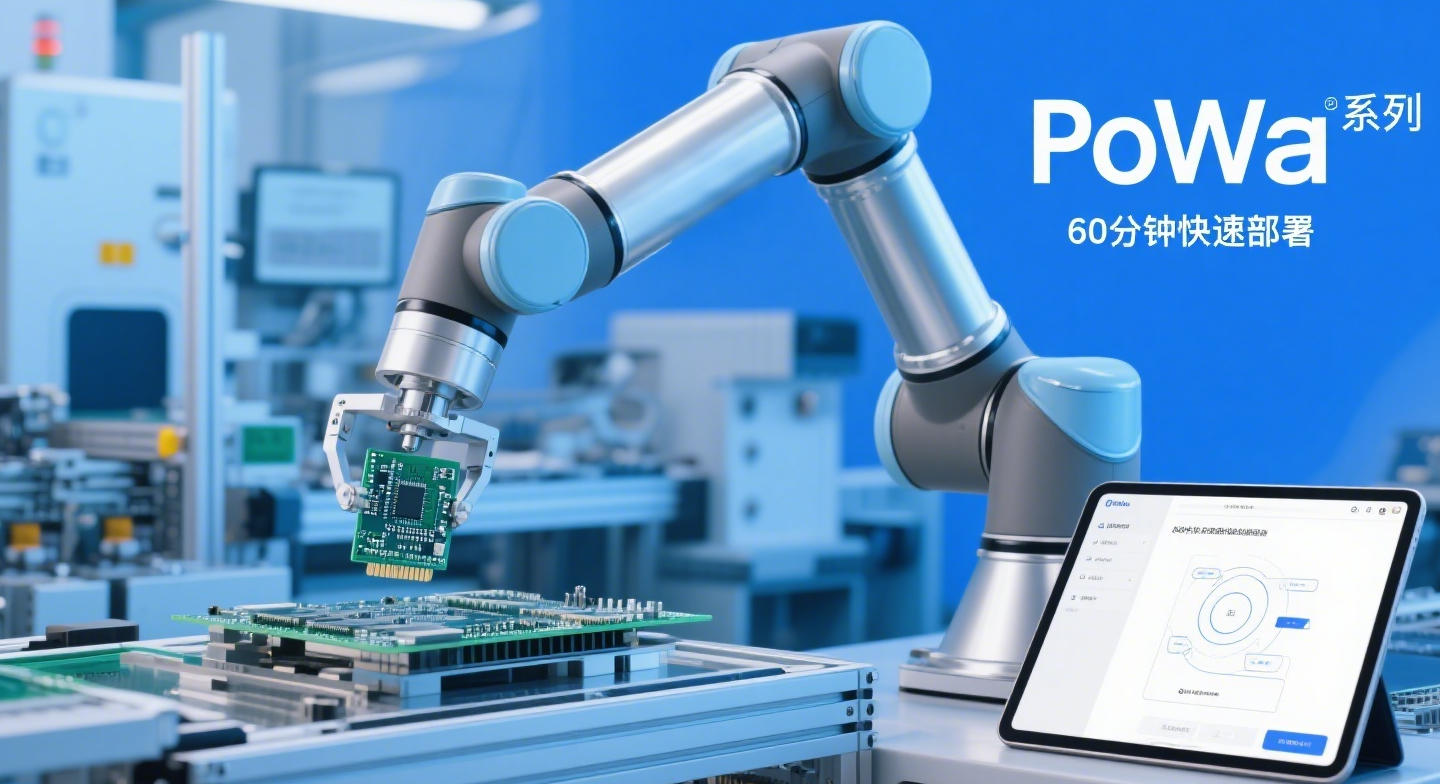PoWa Series Leads Localization Drive as ABB Strengthens China’s Automation EcosystemIn a major stride toward advancing global manufacturing automation, ABB has expanded its collaborative robot portfolio with the launch of the
ABB PoWa collaborative robot series at its state-of-the-art
ABB Shanghai Robotics Superfactory. Designed to redefine efficiency in high-growth industries, the new series joins ABB’s renowned YuMi dual-arm robot and GoFa collaborative robot lines, reinforcing the company’s position as a leader in intelligent automation solutions.

Innovations in Accessible Automation: AI, Code-Free Programming, and Rapid Deployment
The PoWa series stands out for its user-centric design, integrating
AI-driven robot teaching and
code-free robot programming to simplify operations for businesses of all sizes. Equipped with
plug-and-play robot peripherals, the robots can transition from unboxing to full production in just 60 minutes—a breakthrough in
rapid deployment automation that eliminates traditional technical barriers.
“Manufacturers today need solutions that are powerful yet accessible,” said a senior ABB robotics engineer during the launch. “The PoWa series combines precision engineering with intuitive technology: operators can teach robots new tasks using voice commands or visual cues, while our code-free interface means even teams without advanced programming skills can optimize workflows.”
Targeting High-Growth Industries: From Electronics to General Manufacturing
The new robots are tailored for diverse applications across
electronics manufacturing automation,
consumer goods production, and
general industry robotics. Key use cases include
material handling robots for logistics workflows,
precision gluing automation for electronics assembly,
CNC machine tending robots for metalworking, and
arc welding automation for automotive components.
Small and medium-sized enterprises (SMEs) stand to benefit significantly, as the PoWa series delivers enterprise-grade performance at a mid-market price point. “SMEs are the backbone of manufacturing growth, and we’re committed to making automation accessible to them,” noted Sami Atiya, President of ABB Robotics and Discrete Automation. “Our
SME automation solutions empower these businesses to boost productivity, improve quality, and compete globally.”
Localization Strategy: Made in China, for China’s Evolving Market
The launch underscores ABB’s
localization strategy in China, with the PoWa series fully produced at the Shanghai Robotics Superfactory—a $150 million facility that now manufactures over 90% of ABB’s robots for Chinese customers. This localized approach ensures faster delivery, customized support, and alignment with
China robotics market trends, including surging demand for flexible automation.
“China’s manufacturing sector is undergoing a digital transformation, and our superfactory is the cornerstone of our commitment to this journey,” explained ABB’s China robotics director. “By combining global technology with local production, we’re accelerating the adoption of smart manufacturing across the region.”
Sustainability and Social Impact: Beyond Automation
While advancing automation, ABB continues to integrate sustainability into its innovation roadmap. The company’s focus on
sustainable manufacturing aligns with its recent recognition in the
TIME most sustainable companies 2025 list, highlighting efforts like energy-efficient robot designs and circular economy practices.
In parallel, ABB’s
Tech Girls initiative—which empowers female students through STEM education—reinforces its commitment to 社会责任 (social responsibility) in China. “True progress in manufacturing requires both technological innovation and inclusive growth,” said an ABB spokesperson. “Our robots drive productivity, but our community programs drive the talent pipeline that will shape tomorrow’s industry.”
Riding the Wave of Industrial Automation Trends
The PoWa series launch comes amid booming global demand for
smart manufacturing technologies, with the
collaborative robot market growth projected to exceed 25% annually through 2025. ABB’s investment in AI, digital tools, and localized production positions it to lead the
digital transformation in manufacturing, while its focus on green solutions aligns with the rise of
green manufacturing globally.
As industries race to adopt flexible, efficient, and sustainable automation, ABB’s latest innovations—from the PoWa series to its ecosystem of smart factory solutions—are set to redefine what’s possible in modern manufacturing.
